Keywords:
inclusive education, educational policiesAbstract
This research aim is based on the educational policymaking within the framework of Inclusive Education in Peru. A diagnostic study was done in two Basic Education Institutions from Chiclayo (Peru) located on the north of the country. The sample population was composed of 58 people among teachers and management staff of both institutions. The research instruments were: surveys, interviews, document analysis sheet and observation guide. Results allowed to set need priorities, define challenges, make institutional education policies along with goals and objectives. Besides, they showed that both institutions coped with some needs and challenges like: 1. Implement the inclusive education in management documents. 2. Have teachers trained in inclusive education. 3. Respond to the required standards of infrastructure, equipment, resources and services, and 4. Engage the whole educational community in the inclusive education. Thus, despite policies and their national and international advocacy specific guidelines are required to carry on these processes and adopt institutional education policies.
Downloads
References
Defensoría del Pueblo. (2007). Educación Inclusiva: Educación para todos. Lima.
Fundación Iberoamerica para la Educación, la Ciencia y la Cultura. (2009). Estudios de Políticas Inclusivas en América Latina. Madrid: Eurosocial.
Gobierno Regional de Lambayeque. (2006). Proyecto Educativo Regional de Lambayeque.[en línea] Disponible en: http://www.cne.gob.pe/images/stories/per/PER_Lambayeque.pdf.
Hernández, F. (1998). Metodología del Estudio. Colombia: Mc.Graw Hill.
Iyanga, A. (2006). Políticas Educativas: Naturaleza, historia, dimensiones y componentes actuales. Valencia: Nau Llibres.
Lafrancesco, G. (2003). Los cambios en la educación: Perspectiva etnometodológica. Bogotá: Magisterio.
Ministerio de Educación del Perú. (2004). Ley General de Educación Nº 28044. Lima: MINEDU.
Núñez, N. & Palacios, P. (2007). Fundamentos y Políticas para la Formación Docente en el Perú. Chiclayo - Perú: USAT. Organización de las Naciones Unidas para la Educación, la Ciencia y la Cultura. (Marzo 2008). «Dossier Educación Inclusiva.» Editado por C. Acedo. Perspectivas: revista trimestral de educación comparada XXXVIII, nº 145: 36.
Organización de las Naciones Unidas para la Educación, la Ciencia y la Cultura. (2009). Directrices sobre Políticas de Inclusión en Educación. París: UNESCO.
Pontificia Universidad Católica del Perú. (2006). Políticas Educativas y Desarrollo Regional. Lima: Imprenta PUCP.
Samaniego, P. (2009). Análisis de situación. Personas con discapacidad y acceso a servicios educativos en Latinoamérica. Madrid: Grupo editorial CINCA.




